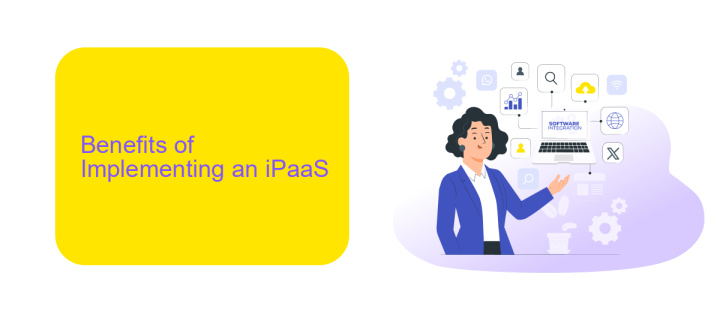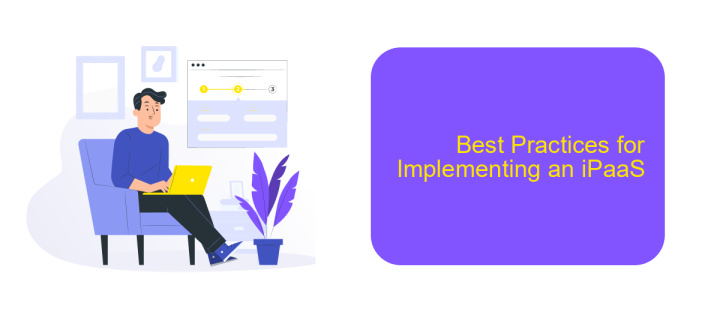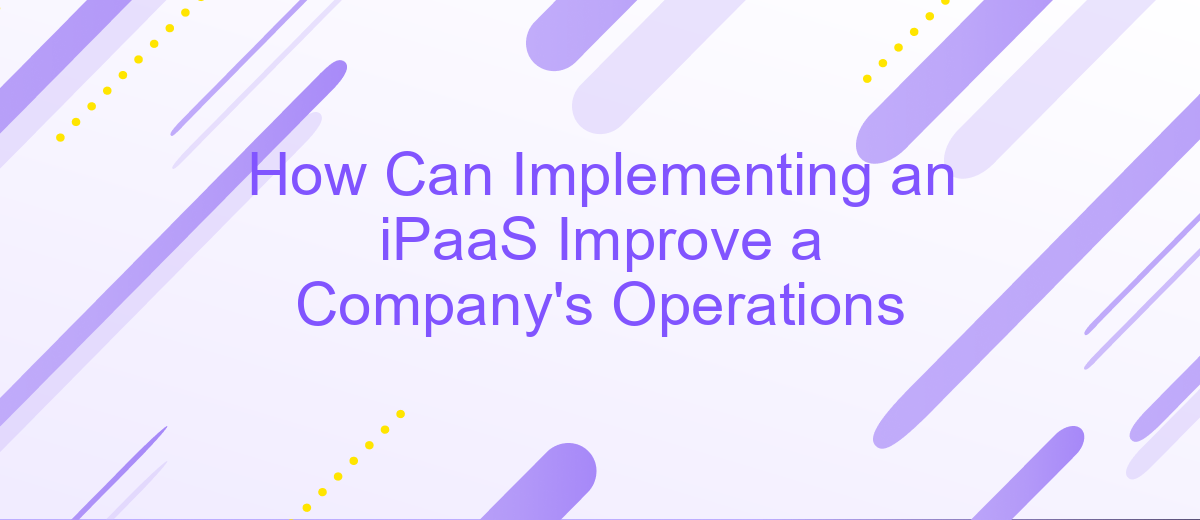How Can Implementing an iPaaS Improve a Company's Operations
In today's fast-paced business environment, seamless integration of various software applications is crucial for operational efficiency. Implementing an Integration Platform as a Service (iPaaS) can significantly enhance a company's operations by streamlining workflows, improving data management, and enabling real-time communication between disparate systems. This article explores the myriad benefits of iPaaS and how it can transform your business processes for the better.
Introduction
In today's fast-paced business environment, companies are constantly seeking ways to streamline their operations and improve efficiency. One effective solution is the implementation of an Integration Platform as a Service (iPaaS). iPaaS offers a comprehensive suite of tools that facilitate seamless integration between various software applications, enabling businesses to automate processes and enhance data flow.
- Automated workflows that reduce manual intervention
- Real-time data synchronization across multiple platforms
- Scalable solutions that grow with your business
By leveraging iPaaS solutions like ApiX-Drive, companies can easily connect disparate systems without the need for extensive coding or complex configurations. This not only saves time and resources but also ensures that critical business data is always up-to-date and accessible. As a result, businesses can make more informed decisions, respond to market changes more rapidly, and ultimately achieve greater operational efficiency.
Benefits of Implementing an iPaaS

Implementing an Integration Platform as a Service (iPaaS) can significantly enhance a company's operations by streamlining the integration of various applications and data sources. This seamless integration allows for real-time data exchange, reducing manual data entry and minimizing errors. With iPaaS, businesses can automate workflows and improve overall efficiency, leading to faster decision-making and better resource allocation.
Moreover, iPaaS solutions like ApiX-Drive offer user-friendly interfaces and pre-built connectors, making it easier for companies to set up and manage integrations without extensive technical expertise. This accessibility empowers businesses to quickly adapt to changing market demands and scale their operations efficiently. By leveraging iPaaS, companies can achieve greater agility, improve collaboration across departments, and ultimately drive growth and innovation.
Challenges of Implementing an iPaaS

Implementing an iPaaS (Integration Platform as a Service) can significantly streamline a company's operations, but it comes with its own set of challenges. Understanding these challenges is crucial for a successful implementation.
- Complexity of Integration: Integrating disparate systems can be complex and time-consuming. Ensuring that all systems communicate effectively requires meticulous planning and execution.
- Data Security: Transferring data between systems poses security risks. Companies must ensure that their iPaaS solution has robust security measures to protect sensitive information.
- Scalability Issues: As a company grows, its integration needs will evolve. It is important to choose an iPaaS solution that can scale with the company's growth.
- Cost: Implementing an iPaaS can be expensive. Companies need to consider both the initial setup costs and ongoing maintenance fees.
- Vendor Lock-in: Relying on a single iPaaS provider can lead to vendor lock-in, making it difficult to switch providers or integrate new technologies in the future.
To mitigate these challenges, companies can use services like ApiX-Drive, which simplifies the integration process by offering a user-friendly interface and pre-built connectors. This can reduce the complexity and time required for integration, allowing companies to focus on their core operations while ensuring data security and scalability.
Best Practices for Implementing an iPaaS

Implementing an iPaaS (Integration Platform as a Service) can significantly enhance a company's operations by streamlining processes and improving data flow between disparate systems. To achieve the best results, it is essential to follow certain best practices during implementation.
Firstly, it is crucial to clearly define the objectives and requirements of the integration. This involves identifying the key systems that need to be connected and understanding the specific data flows and processes that need to be automated. Engaging stakeholders from various departments can provide valuable insights and ensure that all needs are addressed.
- Select a reliable iPaaS provider that offers robust features and scalability options. ApiX-Drive, for instance, provides a user-friendly interface and a wide range of pre-built integrations that can simplify the setup process.
- Ensure data security and compliance by implementing proper authentication and encryption measures. This is particularly important when dealing with sensitive information.
- Conduct thorough testing before going live to identify and rectify any issues. This can help avoid disruptions and ensure a smooth transition.
By adhering to these best practices, companies can maximize the benefits of their iPaaS implementation, leading to improved operational efficiency and better data management. Regular monitoring and updates are also recommended to maintain optimal performance and adapt to changing business needs.
Conclusion
Implementing an iPaaS can significantly enhance a company's operations by streamlining processes, improving data accuracy, and enabling better decision-making. By integrating various software applications and services, businesses can eliminate data silos, reduce manual tasks, and ensure real-time data flow across departments. This leads to increased productivity, more efficient workflows, and a more cohesive organizational structure.
One notable example is the use of services like ApiX-Drive, which simplify the integration process by providing a user-friendly platform for connecting different applications. With such tools, companies can quickly set up and manage integrations without requiring extensive technical expertise. This not only saves time and resources but also allows businesses to focus on their core activities while benefiting from seamless data connectivity. Ultimately, adopting an iPaaS solution can drive operational excellence and position a company for long-term success in a competitive market.
FAQ
How can implementing an iPaaS improve a company's operations?
What are the key benefits of using an iPaaS for data integration?
How does an iPaaS enhance scalability for a growing business?
Can an iPaaS improve customer experience?
What is ApiX-Drive and how does it help with iPaaS implementation?
Strive to take your business to the next level, achieve your goals faster and more efficiently? Apix-Drive is your reliable assistant for these tasks. An online service and application connector will help you automate key business processes and get rid of the routine. You and your employees will free up time for important core tasks. Try Apix-Drive features for free to see the effectiveness of the online connector for yourself.

